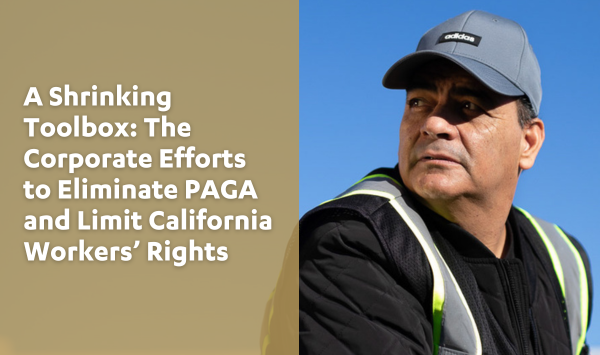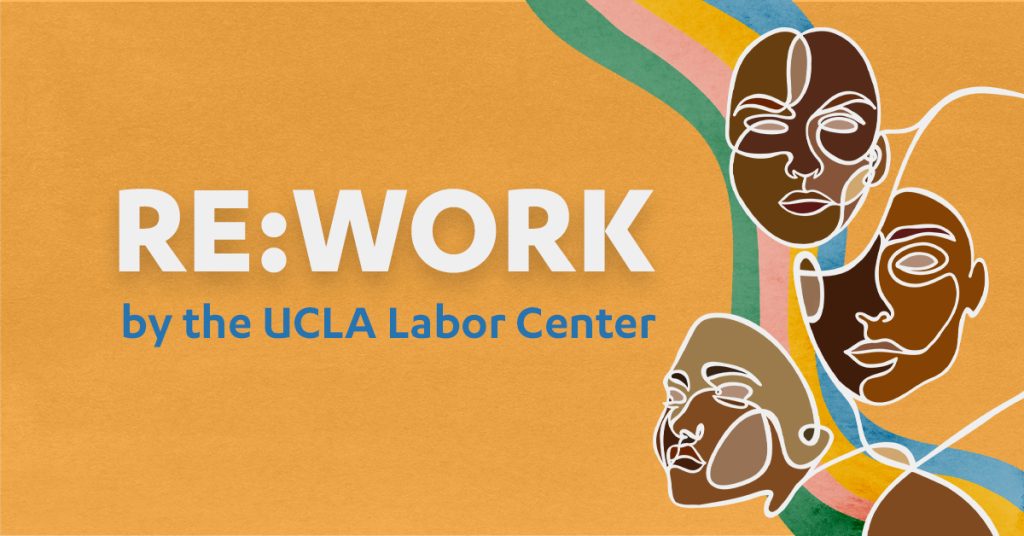Despite having the strongest workplace laws in the nation, workers in California experience high rates of labor violations that disproportionately harm workers of color and workers in low-wage industries.
Lawmakers created the Private Attorneys General Act (“PAGA”) in 2003 to broaden the state’s labor enforcement capacity. Under PAGA, workers file lawsuits on behalf of the Labor & Workforce Development Agency (“LWDA”) for company-wide violations. “A Shrinking Toolbox: The Corporate Efforts to Eliminate PAGA and Limit California Worker’s Rights” is the first to analyze the likely impact on workers of a ballot initiative that would dramatically alter California’s tools for preventing and correcting wage theft and other workplace abuses.
Among other findings, the report notes:
- The crisis of compliance in low wage industries will not be solved through state enforcement initiatives alone.
- PAGA is crucial to enforce labor laws where workers have signed arbitration clauses. PAGA filings have increased in direct proportion to the explosion in forced arbitration clauses since the early 2000s.
- PAGA amplifies the state’s strategic enforcement efforts. Between 2018 and 2021, worker whistleblowers have filed more than 4,208 PAGA notices with the LWDA in the following strategic high violation industries: agriculture, auto repair, car wash, garment, janitorial, restaurant, retail, and warehouse. This is nearly three times the number of inspections the Bureau of Field Enforcement was able to conduct during the same time period.
- PAGA liability creates a market incentive to comply with labor laws. Corporations are incentivized to invest in compliance with labor and employment laws when noncompliance presents a significant threat to their profits.
- PAGA penalties fund labor law outreach, public enforcement, and education. Last fiscal year, PAGA generated $209 million for the LWDA.
- PAGA suits address wage theft and other serious violations.20 More than nine out of ten (91%) of PAGA claims allege wage theft, including overtime violations (79% of cases) and failure to pay for all hours worked (76% of cases).
- PAGA suits, while critically important to labor standards enforcement, comprise less than 1% of state court cases.


